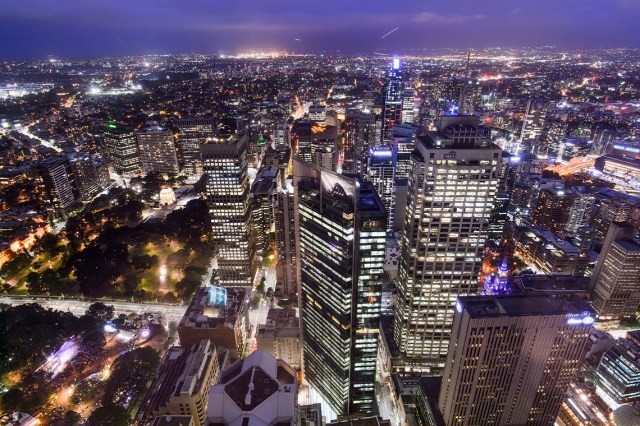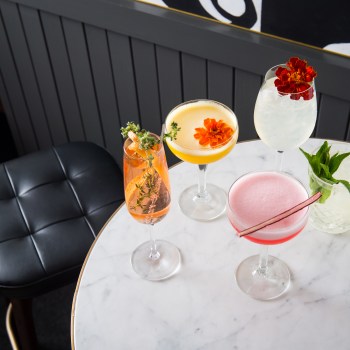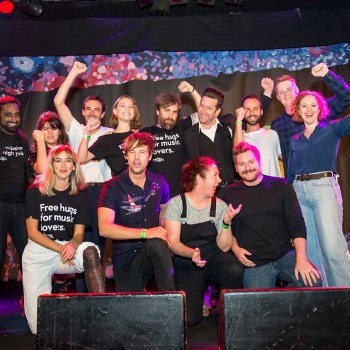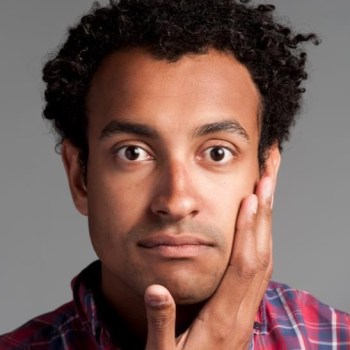Sydney’s struggling night-time economy is costing the city and its businesses around $16bn a year according to a report from Deloitte Access Economics.
The report helps to reframe thinking around a night-time economy, by making it about more than just pubs, drinking and in Sydney’s case, lockouts. It says that the night-time economy is becoming more recognised as a driver of economic growth and a substantial part of a nation’s economy.
“It’s not surprising then, to see planning for it becoming increasingly important to many cities around the globe,” the report says.
“If we could shift the planning for Sydney’s NTE from a reactive, restrictive one, to a strategic, planned and open process, the opportunities to be gained are significant.
“The city is different at night, and so planning to create a successful NTE needs to be approached differently too. While the NTE in Greater Sydney is growing, and the City of Sydney and other local councils within the region are crafting new strategies, when compared to international benchmarks, the NTE in Greater Sydney is still well below its potential.”
In detailing just how far below its potential Sydney’s night-time economy really is, the report states that the NTE in Greater Sydney is valued at nearly $27.2bn. That is made up of $15.7bn from the food sector, $7.1bn from the entertainment sector and $4.4bn from the drinks sector.
The report adds: “In 2017, the NTE in Greater Sydney supported almost 234,000 jobs; over 152,000 in the food sector, over 49,000 employees in the entertainment sector and almost 33,000 in people in the drink sector.
“Greater Sydney’s NTE is estimated to account for 22 per cent of national NTE revenue and employment and represents approximately 67 per cent of NSW’s total.”
The shortfall to the night-time economy comes when comparisons are made to other global cities, which highlight the potential value.
“In the UK, the NTE compromises six per cent of the nation’s economy, while in Australia it makes up only 3.8 per cent. If the NTE in Australia was supported and nurtured, so that it matched the UK NTE, the estimated value of the NTE in Greater Sydney could be $43.3bn.
“Only 23 per cent of spending in Sydney happens after 6pm, compared with 36 per cent in Berlin. It also revealed that Sydney’s night spend is predominantly in ‘non-communal’ categories such as groceries and food stores and Sydney’s night spend falls behind when it comes to communal type spending at restaurants, bars, retail and the arts.”
The report also highlights the importance of reframing the conversation about the night-time economy so that it is about more than just drinking and lockouts.
“Moving the discussion away from regulating a drinking culture, towards a consideration of how we can use the NTE to create a strong social environment and urban culture will be crucial.
“There is definitely a major role for state and local government to play in regulating and developing policy that will stimulate and support a vibrant night time city.
“Planning and licensing that encourages initiatives like late night gallery and museum hours, live music or comedy and smaller bars with a different culture to one solely focused on drinking is important.”
Taking a holistic approach to improving Sydney’s night-time economy and having people realising it is about more than just lockouts has been a strong focus for the recently formed Night Time Industries Association.
But what Chairman Michael Rodrigues told TheShout, was that this report highlights just how stifled and over-regulated Sydney’s night-time economy is and that for the full potential to be realised thought processes need to shift and the shackles of regulation need to be lifted. He highlighted that similar over-regulation of music festivals in the state, with the introduction of ‘user pay’ bills for police and medical services at festivals has seen at least one decide not to go ahead.
“Everyone is starting to wake up to the challenges facing the night time economy,” Rodrigues said.
“For the first time the conversation has shifted to address the issues we all know the hospitality sector has been facing. Venue operators in Sydney have been carrying the same load that the festivals will now face, and we know how that story ends. 176 venues gone. Many others are struggling to keep the lights on. Government needs to take action.”
In a column for the Sydney Morning Herald, Sydney Lord Mayor, Clover Moore called on the State Government to take action to save the city’s night-life.
“As the analysis from Deloitte Access Economics makes clear, this is more than just about pubs and clubs,” The Lord Mayor said. “It is, as I’ve often said, about giving people more options at night – museums, cafes, galleries and retail stores as well as small bars, pubs and clubs and dance venues.
“There are green shoots of promise in our night-time sector and so much potential. We just need the political will by our state government – and the opposition – to nurture what’s already working and build on that and to introduce long-lasting reform to help Sydney truly thrive late at night.”
The Deloitte Access Economics Report: ImagineSydney – Create, Live, Work and Play – is available to download on the Deloitte website.



